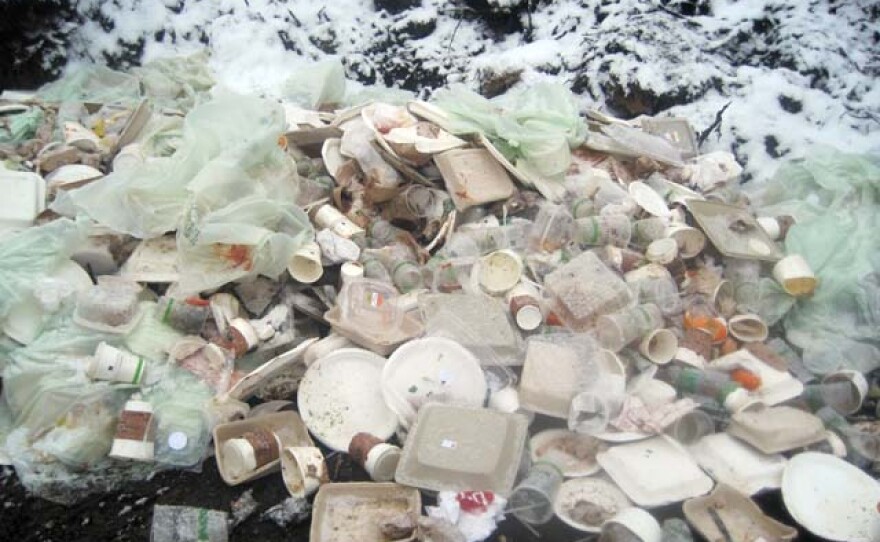Have you ever seen those plastic forks or spoons made from corn or potatoes? It’s a big trend right now.
They’re compostable. So in theory... this tableware breaks down into a dark, rich material that’s really good for gardening.
So you get the convenience of disposable plastic... without adding to the big pile of plastic trash.
But here’s where things get tricky.
Liz Shoch is with the Sustainable Packaging Coalition. She's working with companies to rethink the way they package their products.
“One of the things we say a lot currently is there is no sustainable package and that goes for compostable packaging too. There’s always tradeoffs.”
She says compostable packaging can be a good way to divert waste from the landfill. But it won’t break down in your backyard compost pile for a long time. So you have to find a special place that’ll take it.
And she says don’t think about putting compostable tableware in your recycling bin. Even the smallest bit of compostable packaging can mess up a whole batch of recyclable plastic and make it unusable.
So you might think – why not just throw it away?
“What happens in the landfill is most of what goes in there does not break down. However, some organic matter does break down, the problem with that is it’s usually breaking down without oxygen present, it creates carbon dioxide and methane, an extremely potent greenhouse gas.”
So what do you do with it? There are not a lot of places that take compostable packaging yet... but one Michigan farm does.
Tuthill Farms is in South Lyon. Sandra Tuthill and her husband Jim have 30,000 cubic yards of compost.
On the day I visited, the farm had just gotten a truckload of coffee cups, utensils and bags... all made from corn.
Sandra Tuthill says it’s about 165 degrees in the middle of the compost piles.
“Which is roughly the same temperature as a crock pot. Which is kinda interesting, so if you think about it, we have big crock pots out here, simmering all this stuff down.”
The Tuthills mix and turn the compost piles through the winter. Then in the spring, they sell the compost.
Sandra Tuthill says they’d love to take more compostable packaging – but they can’t take it from just anybody. That’s because they have to make sure there’s no trash along with the compostable material.
“The contamination is the biggest issue. We just can’t handle any trash. We want just the food waste or the compostable tableware.”
So you have to work pretty hard to find a good resting place for your potato fork.
Some experts say there’s not a lot of benefit to buying compostable tableware if it ends up in the landfill. They’re hoping to see more businesses take advantage of what these utensils are designed for: turning them into usable compost.







